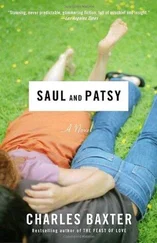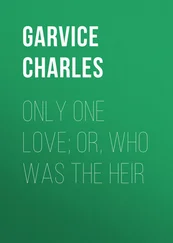Those first few weeks, I was making business arrangements (I went from being a salaried employee to being an entrepreneur), but once I had organized the business in the mall and saw that it was up and running, I went back to my painting during my free time at home. I’d paint canvases and take the dog for endless walks around town, and we would watch sports on TV, Bradley the dog and I, though I was very often indifferent to the outcomes. Why should I cheer these steroid-stupefied guys? I’d watch seven innings, or two quarters, and then I’d turn the whole thing off, too confused about my allegiances to care.
Typically on weekends I would go down to the basement and start with the brushes and the canvases. I had a battery-operated radio propped up on top of the water heater and tuned to the FM station, and some masterpiece from the repertoire would come on, let’s say Brahms, one of those symphonies, and I’d be all right until I started to listen. Since I’m visual, I converted everything audible into a visual, and while I was listening to this heavy Brahmsian music — it sounded like excited lamentation to me — I’d imagine a leaf being blown across a field, and then I saw myself as that same leaf being windswept on a drift of snow, and then I’d see a dry creek bed and people at a party at dawn wandering home and feeling hungover and sick in the key of D major, and I’d think: This isn’t about good emotional hygiene, this is about me. I don’t want to be a leaf, hell with that, I’m a king and not a leaf, I’m Bradley W. Smith, and I’d snap off the music. But once you’ve got yourself successfully imagined as a dry leaf and you’ve got that particular image stuck in your head, it’s difficult to get it out of your mental repository, and you’re committed to it.
This is how people mess themselves up, getting obsessed with images.
I’d wait for the news to come on and announce some noteworthy global disaster to take my mind off Brahms, but sometimes no global disasters present themselves when you require them, just a scandal or two to keep people interested in the informational scene, and so I’d start painting the leaf that I had become, I’d put the Bradley-leaf into a corner of the painting, and gradually the rest of the painting would become unimportant and I’d overpaint it and make it abstract with the only resolution in imagery being that Bradley-leaf rising out of a dense fog of abstraction. After a while you wouldn’t even be able to tell what it was I had painted exactly; it had rearranged itself very far from the familiar home truths. I didn’t want it to seem melancholy — I can’t stand pathos — but there it was, hopeless and crazily metaphorical, nevertheless still a leaf, abstract as it was. Rothko wouldn’t have done it that way. Franz Kline wouldn’t have done it that way. No one else would have. It was my own autobiographical leaf, shadowing me and showing up in my painting, in pursuit.
What’s agitating about solitude is the inner voice telling you that you should be mated to somebody, that solitude is a mistake. The inner voice doesn’t care about who you find. It just keeps pestering you, tormenting you — if you happen to be me — with homecoming queens first, then girls next door, and finally anybody who might be pleased to see you now and then at the dinner table and in bed on occasion. You look up from reading the newspaper and realize that no one loves you, and no one burns for you. The workings of nature are mysterious, but they do account for a certain amount of despair among single persons, the irrelevance you sometimes feel.
I would sometimes mention these matters to Harry Ginsberg. I figured, well, he is a philosopher, after all. He’d be shoveling snow off his sidewalk, and I’d be doing the same, and I’d come over to his side to help him out. This was March, when you’re sick of the snow and the overcast skies, and the sickness also has a way of settling down on your self, particularly on those days when money, more and more money, doesn’t seem like the solution to anything.
Harry was glum, worried about Aaron again. “Good morning,” he would say, downcast.
“Aloha,” I said this one time, to cheer him up, leaning on my snow shovel. “How’ve you been, Harry?”
“It does not bear discussion,” he said, pushing snow in my direction. Then he propped his shovel on his arm as I had been doing. “Today I was thinking of a story. A poem, I think, that my mother used to recite.” He looked at me and breathed in. “About a dragon with a rubber nose. This dragon would erase all the signs in town at night. During the day, no one would know where to go or what to buy. No signs anywhere. Posters gone, information gone. Interesting, isn’t it? A world without signs of any kind. The poem was in Yiddish. Signlessness is perhaps a Jewish fixation. Very curious. I often think about that poem.”
“Very interesting,” I said. “Harry, where did you meet Esther?”
“At a political rally,” he told me, a twinge of impatience darkening his face. “Why do you ask?”
“I sometimes think I need to meet someone.”
“Ah,” he said. “Are there not conventions and get-togethers in your coffee business?”
“Well, yes.”
“Then go to one,” he said, resuming his shoveling. “Meet someone. Meet any one.” I could tell that in his present mood he didn’t want to talk to me anymore, so I left him there, disappointed with the snow, the fact of it.
NEVERTHELESS, I DECIDED to follow his advice. A month later, I went off to a convention in Indianapolis of specialty coffee retailers, and I asked Chloé and Oscar to stay in my house, so that I wouldn’t have to pay the expense of boarding Bradley the dog at a kennel. They would house-sit, and they did. They moved in with cagey smiles on their faces.
In Indianapolis, at the convention, I had a one-night stand with the assistant manager of a Starbucks in Minnesota, and the experience was extremely pleasant but quite hard to remember after it was over — she was, and I’m not this saying as criticism, taxing once you got past her superficial prettiness, and at breakfast we finally decided not to converse because of the difficulty in finding topics of common interest. Our sudden and surprising apathy toward each other made the time pass slowly, above the scrambled eggs and the toast and the coffee. With the haze of drunkenness having faded and sobriety taking its place, she apparently found me shabby and colorless in the way that people can often be in the morning. I do remember that her red hair smelled of smoke when we were in bed. Smoky red hair, as if the head were on fire.
When I returned home from the convention in Indianapolis, the house was spick-and-span, nothing out of place. I mean those two, Oscar and Chloé, looked like castoffs and flotsam, but, being in love, their inner lives were conventionally brisk, and they were fastidious and neat, as if they wanted the world to continue for a while so that they could be in it.
I’d only been back in the house for a day or so when I noticed that an imperceptible change had overtaken the first floor and the bedrooms upstairs. I was cooking dinner, a simple stir-fry, when I thought I heard some sound, a cry of some sort, coming from the living room. Thinking that it might be Bradley, I checked the room but found nothing out of place. Here on one side was the bookcase, and there against the west wall was the audio system. I shrugged to myself and soon forgot about it. As I was doing the dishes, my hands slippery with soap, the tap water splashing into the sink, I heard the cry again, more distinctly, and this time I knew that the cry had not been one of pain but of surprise. Pleasure was in it somewhere. I found this auditory memory quite perplexing.
Читать дальше
Конец ознакомительного отрывка
Купить книгу












